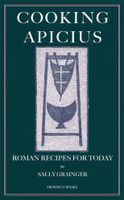Advertisement
Historical Background
Published 2006
I believe the recipes in Apicius were actually read and used by slave-cooks rather than read by any gourmet. It is a practical handbook, a ‘blue-collar’ text we might say, and consequently there is some confusion over the title and the author of the book. There are many references in ancient sources to a notorious gourmet called Marcus Gavius Apicius (AD 14–37). He is famous for two things in particular: sailing around the Mediterranean looking for the largest prawns, and for dying in style by poisoning his last banquet; he was certainly no cook. Cooks were skilled slaves who laboured to produce, while the élite consumed the fruits of that labour. There was a complete separation of the production and consumption of high-status food in the Roman world. What then (if anything) has this man to do with the collection of recipes which appears to bear his name? In studying this text we have come to the conclusion that, apart from the few recipes that seem to be named after him, there may actually be little direct connection at all. We believe that the name Apicius became associated with gourmet food through Apicius’ reputation. Later it became associated with the food itself and the cooks who prepared it, and ultimately came to refer to the collection that contained those recipes. In reality, Apicius is the title of a book rather than a reference to its author, though later commentators didn’t necessarily understand this and assumed that the name referred to a single individual. This is why I put the title in italics to distinguish it from the man Apicius himself. We discuss this in detail in our scholarly edition, but in summary the following points need to borne in mind.

